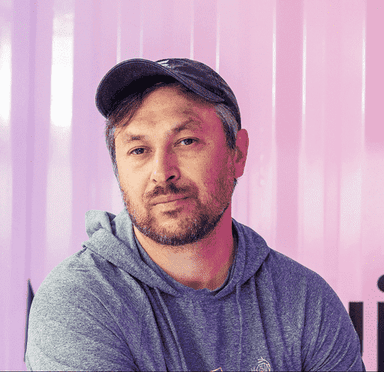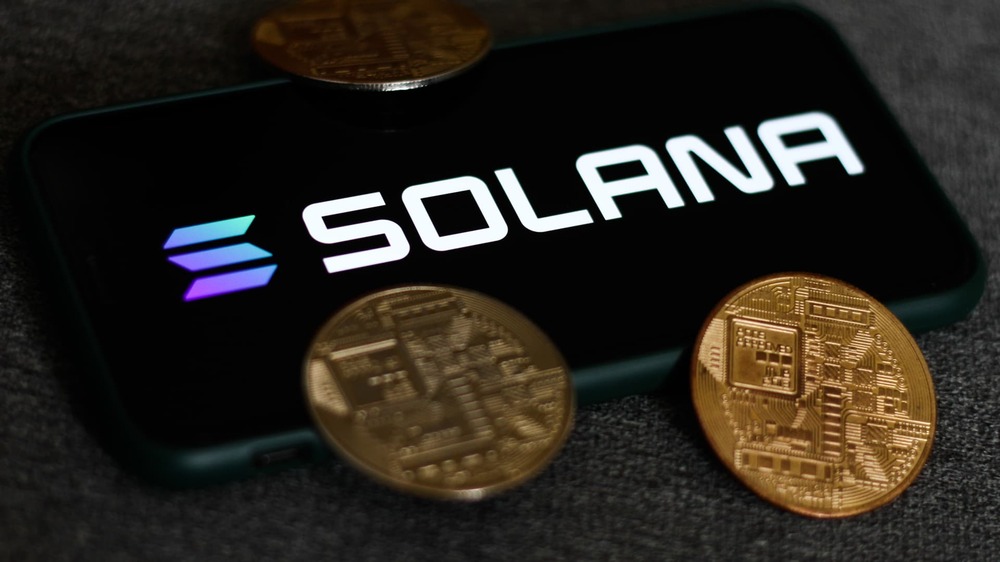
Anatoly Yakovenko
Anatoly Yakovenko: Co-Founder of Solana and Proof-of-History Innovator
Anatoly Yakovenko is a Ukrainian-American software engineer recognized globally as a co-founder of the Solana Blockchain and the primary architect behind its core innovation, the Proof-of-History (PoH) mechanism. Leveraging his extensive background in designing high-performance distributed systems at major technology companies like Qualcomm, Yakovenko conceived Solana with the explicit goal of overcoming the scalability limitations faced by earlier blockchains. He serves as a Co-Founder and CEO of Solana Labs, the entity spearheading Solana's core development.
Early Life, Education, and Engineering Career
Born in Ukraine, Anatoly Yakovenko immigrated to the United States during his childhood. He pursued Computer Science at the University of Illinois Urbana-Champaign, graduating in 2003. Even during college, he demonstrated entrepreneurial drive, co-founding a Voice over IP (VoIP) startup named Alescere (which closed around the time of his graduation).
Yakovenko's professional career was deeply rooted in optimizing complex systems for performance:
- Qualcomm: He spent approximately 12 years (c. 2003-2016) at Qualcomm, ultimately becoming a Senior Staff Engineer Manager. His work involved developing high-performance operating systems, drivers, and software stacks for mobile processors (including the Hexagon DSP), contributing to advancements in areas like augmented reality and embedded systems.
- Dropbox & Mesosphere: Following Qualcomm, he had stints at Mesosphere (now D2iQ) and Dropbox, further deepening his expertise in distributed systems architecture and data compression – skills directly applicable to the challenges of blockchain scalability.
The Genesis of Solana (2017-2020)
Frustrated by the low transaction throughput and high fees limiting existing blockchain networks like Bitcoin and Ethereum in 2017, Yakovenko sought a new approach.
- The Proof-of-History Insight (Late 2017): His key innovation came from realizing that creating a reliable, trustless source of time before consensus could dramatically improve efficiency. By using a Verifiable Delay Function (VDF) implemented as a sequential hashing process, he proposed Proof-of-History (PoH) – a way to cryptographically timestamp and order transactions without requiring validators to constantly communicate back and forth to agree on time. He published a whitepaper outlining this concept.
- Founding Solana Labs (2018): Yakovenko teamed up with former Qualcomm colleagues Greg Fitzgerald and Stephen Akridge, along with Raj Gokal and others, to found Solana Labs and build a blockchain based on the PoH concept.
- Core Objective: The mission was to create an exceptionally fast and low-cost Layer 1 blockchain capable of handling tens of thousands of transactions per second (TPS) – performance comparable to traditional financial networks – designed to support high-frequency DeFi, payments, gaming, and other demanding applications without needing immediate reliance on Layer 2 scaling solutions. Link: Scalability.
- Mainnet Beta Launch: After extensive testing, the Solana Mainnet Beta went live in March 2020.
Solana's Architecture: Proof-of-History and Key Innovations
Solana's performance relies on PoH and several other architectural optimizations:
- Proof-of-History (PoH) Explained: It's crucial to understand PoH is not a consensus mechanism itself. Rather, it's a cryptographic clock. Before transactions are processed by consensus, they are timestamped and ordered using a high-frequency Verifiable Delay Function (VDF). This creates a verifiable historical record of when events occurred relative to each other. This allows validator nodes to process transactions in parallel more efficiently, as they have a trusted time sequence to work from, significantly boosting throughput.
- Proof-of-Stake (PoS) Consensus: Solana achieves network consensus (agreement on the valid state of the ledger) using a Proof-of-Stake (PoS) based mechanism, often involving a system known as Tower BFT, which leverages the PoH-generated time sequence for efficiency. Link: Consensus Mechanisms.
- Other Optimizations: Solana incorporates additional technologies like Turbine (a block propagation protocol), Gulf Stream (mempool-less transaction forwarding), and Sealevel (a parallel smart contract runtime) to further enhance speed and efficiency.

Solana's Ecosystem Growth and Challenges
Since its mainnet launch, Solana has experienced significant growth alongside notable hurdles:
- Rapid Ecosystem Development: Solana quickly attracted a large community of developers and users, fostering thriving ecosystems in DeFi, NFTs (particularly during the 2021 boom), payments, decentralized physical infrastructure networks (DePIN), and Web3 gaming, largely due to its high speed and low transaction costs relative to Ethereum mainnet at the time.
- Network Stability Issues: A major challenge for Solana has been network reliability. The chain has suffered several high-profile outages or periods of significantly degraded performance, often triggered by network congestion from bot activity, specific bugs, or heavy demand. These incidents have raised concerns about its robustness under stress, although Solana Labs and the validator community continuously work on upgrades and mitigations.
- Solana Mobile (Saga & Seeker): In 2023, Solana Mobile (a subsidiary of Solana Labs) launched the Saga, an Android smartphone designed with integrated Web3 features like a secure "Seed Vault" for private key management and a specialized dApp store. While the initial limited run sold out (boosted significantly by valuable airdrops distributed to phone owners), Solana Mobile announced a second-generation device (often referred to as 'Chapter 2' or 'Seeker') aiming for a lower price point and wider accessibility, with shipping anticipated around mid-2025.
Views on the Broader Blockchain Ecosystem
Yakovenko has often addressed Solana's relationship with other major blockchains:
- Not an "Ethereum Killer": He has publicly rejected the narrative that Solana aims to replace Ethereum, stating a belief in a multi-chain future where different blockchains serve different purposes and can potentially achieve Interoperability.
- Techno-Optimism & Collaboration: He has expressed optimism that advancements in other ecosystems, such as potential future data availability improvements on Ethereum (like full Danksharding), could even benefit Solana, potentially allowing it to leverage Ethereum's security for data posting.
“Don’t bring back last cycle ‘eth killer’ bs. It’s lame. I don’t see a future where Solana thrives and somehow Ethereum dies. I’m such a techno optimist that I am certain that eventually danksharding will have enough bandwidth for all of Solana’s data.” - Anatoly Yakovenko (paraphrased from public statements)
Vision and Current Role
Yakovenko continues to be deeply involved in Solana's technical direction as Co-Founder and CEO of Solana Labs. His long-term vision often revolves around Solana serving as a foundational layer for extremely high-speed financial applications and real-time global state synchronization, aiming to match the speed of information flow in traditional markets.
“This is like my science fiction end goal for Solana: When news travels around the world, state transitions travel at the same speed as news... so when a trader looks at a market at NYSE or Solana, it’s the same price.” - Anatoly Yakovenko
Conclusion: Innovator Focused on Blockchain Speed
Anatoly Yakovenko's background in optimizing complex distributed systems directly led to the creation of Solana, a blockchain designed from the ground up for speed and scalability. His key innovation, Proof-of-History, provided a novel approach to ordering transactions efficiently, enabling Solana to achieve significantly higher throughput than many competing Layer 1 networks. While the platform's rapid growth has been accompanied by notable challenges concerning network stability, Yakovenko's technical leadership at Solana Labs continues to drive development within the ecosystem. He remains a central figure in the ongoing pursuit of high-performance blockchain architecture and a prominent voice discussing the future possibilities of decentralized technology.

